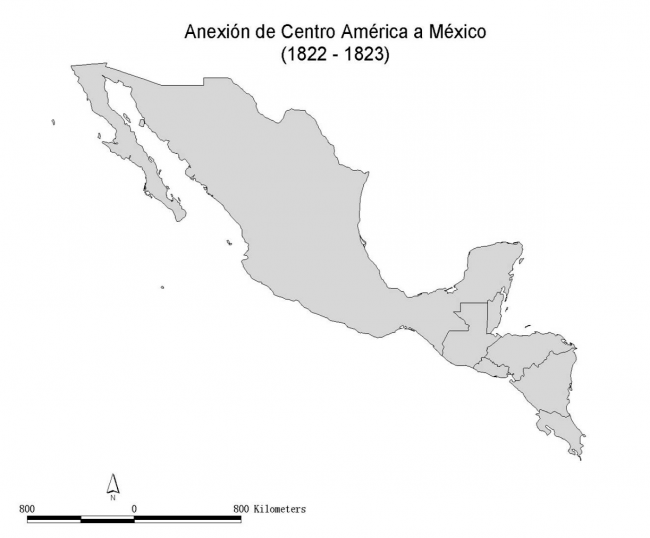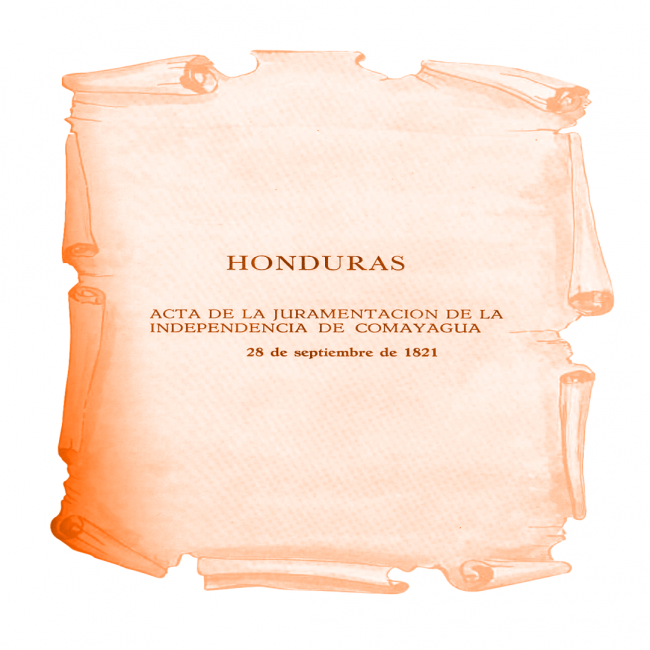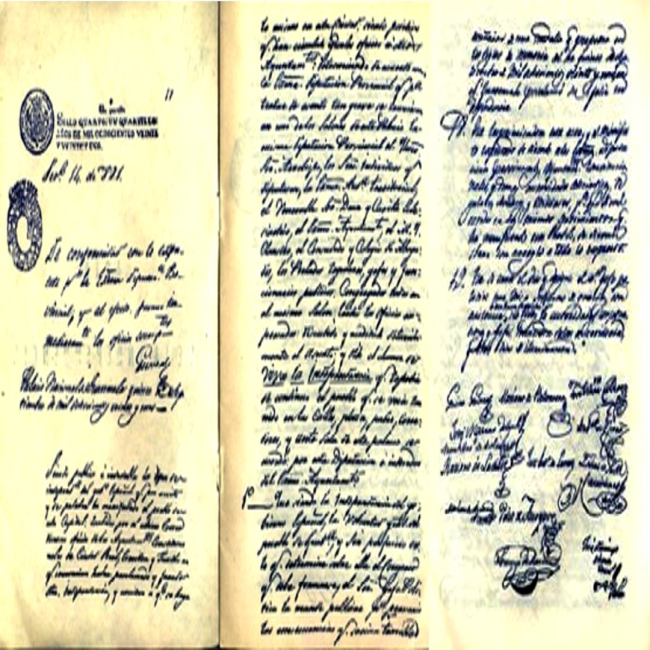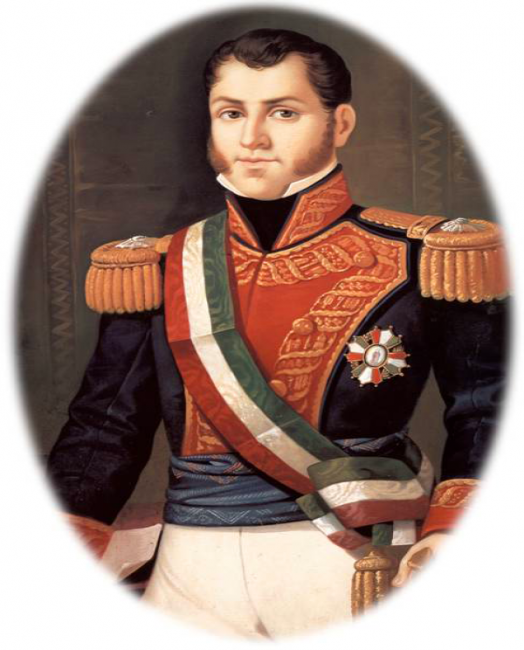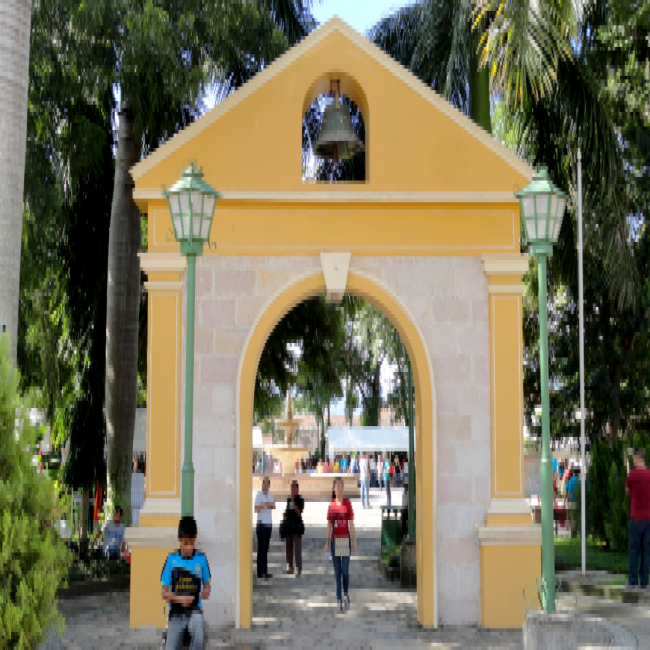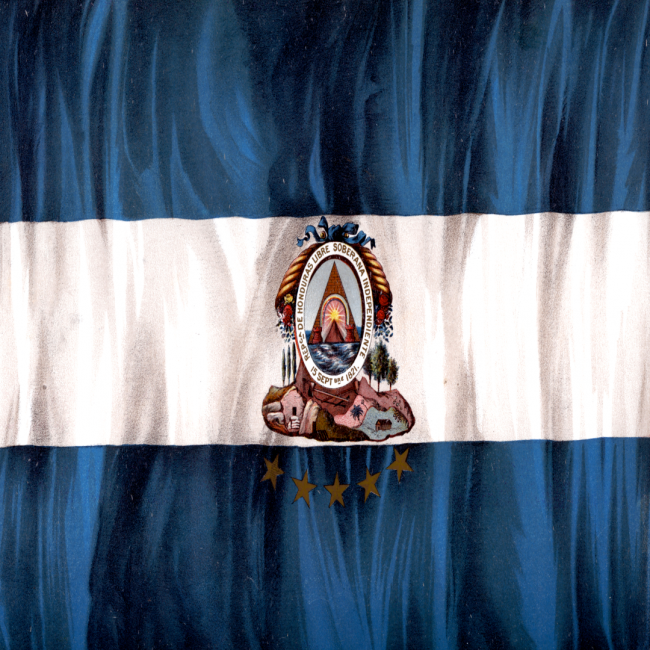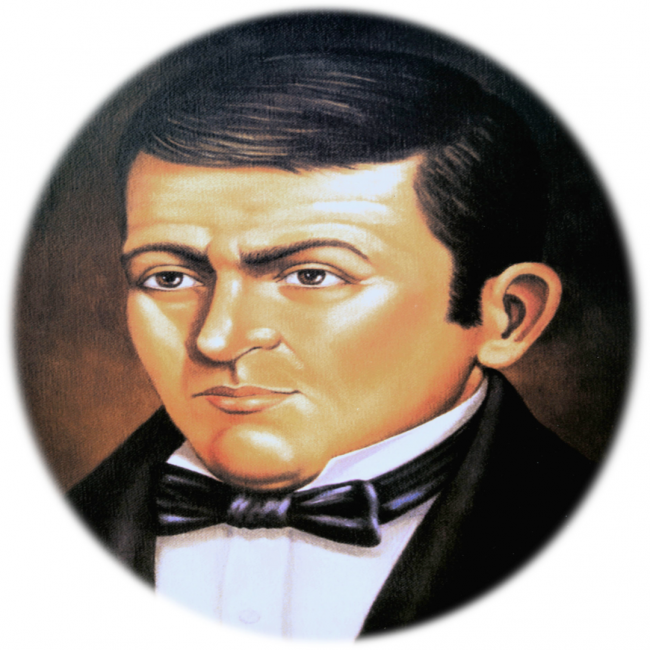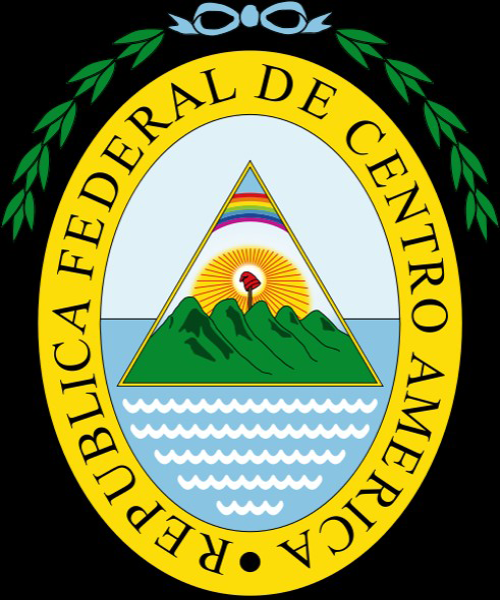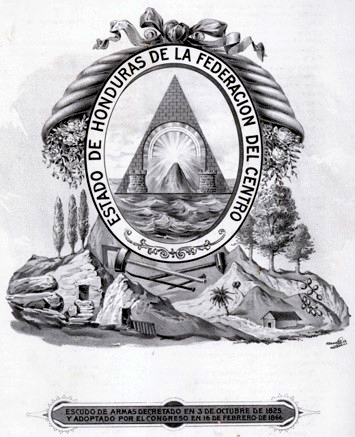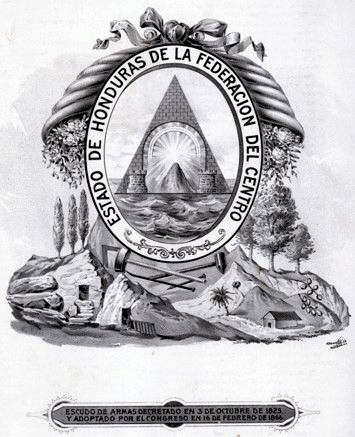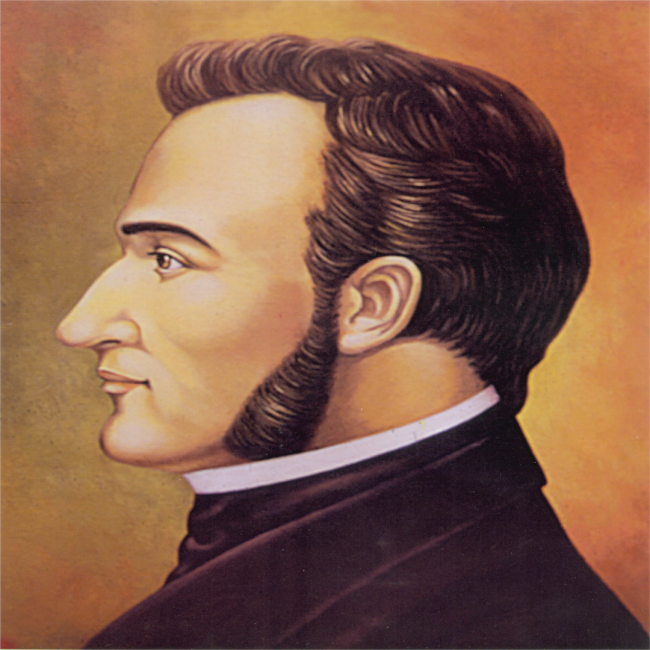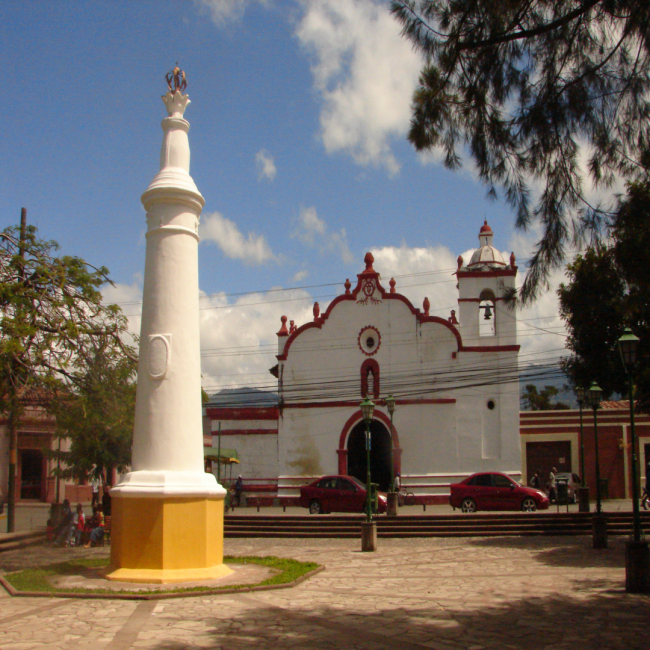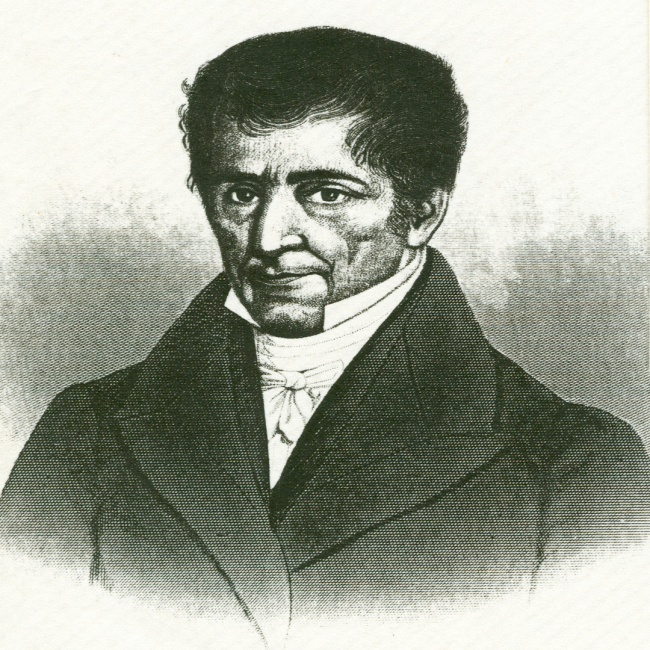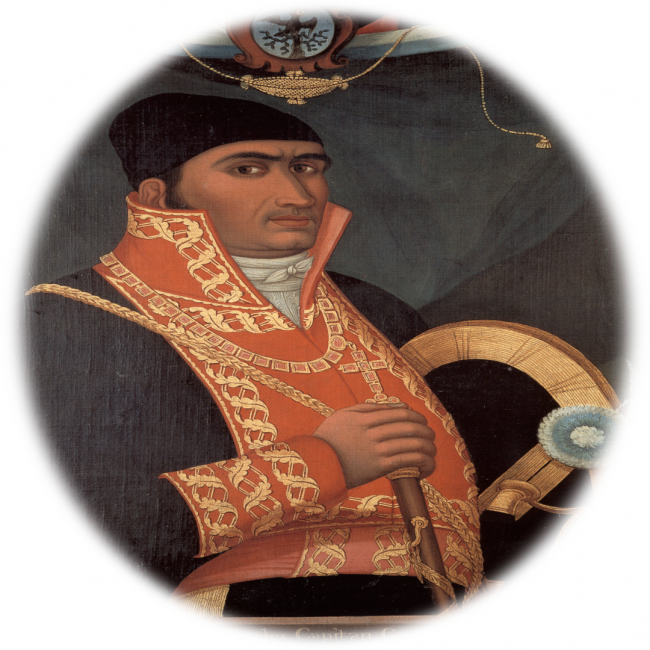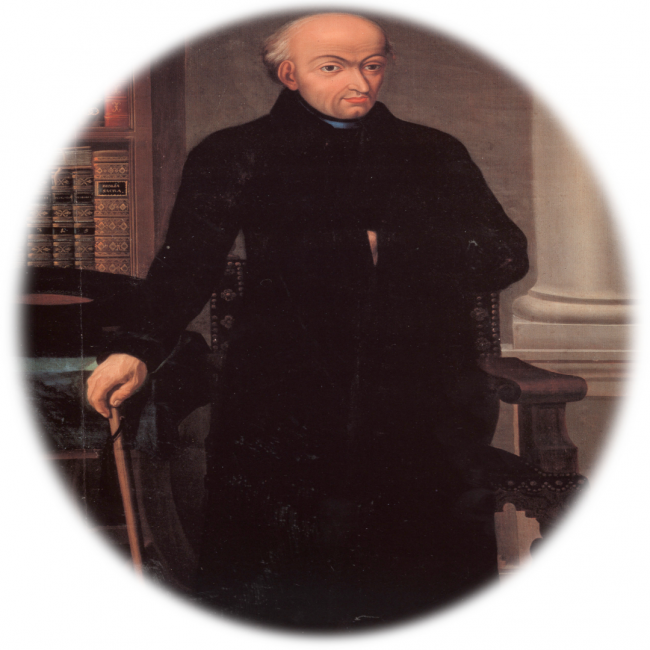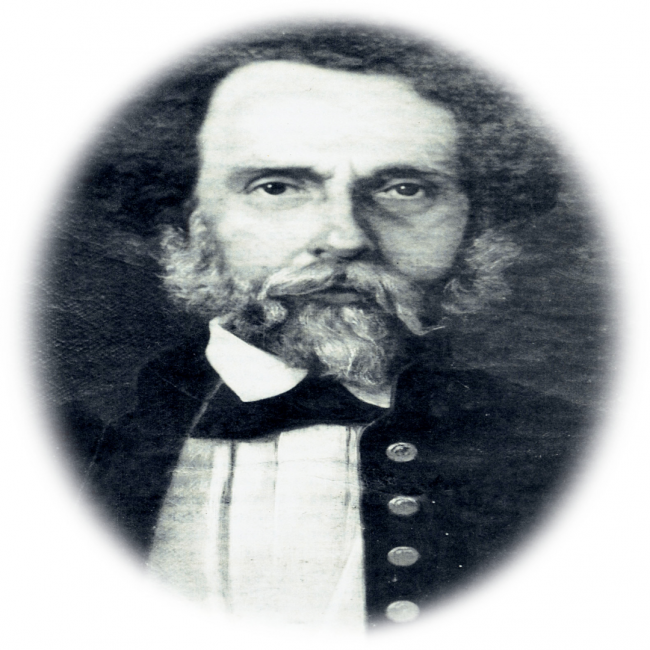The process of Central American independence and Honduras in particular from Spain was not as violent as in other colonies, but it did have popular participation, especially in pro-independence and anti-independence movements.
Independence from Spain
As in any process of change there are always both external and internal causes that motivate it, in the case of the Independence of Honduras we can point out the following:
External causes:
- The ideas of the Enlightenment in Europe in the middle of the 18th century.
- The French Revolution (1789).
- Independence from the United States (1776).
- Napoleon's invasion of Spain (1808).
- Insurrectionary Movements in the Caribbean, South America, and Mexico Internally, the following can be enunciated:
- The contradictions between the old aristocracies made up of officials, landowners, military and high clergy, plus the criollos the sons of Spaniards.
- Indians, mestizos and blacks marginalized from political and economic decisions.
These external causes plus the internal causes result in the Act of Independence of September 15, 1821.
The Independence. Don Jose del Valle.
Jose Cecilio del Valle was born in Choluteca, a province of Honduras, in 1777 and very young moved to Guatemala to pursue law studies that he completed in the University of San Carlos. He is the main Central American exponent of enlightened thought and a scholar of the new sciences: physics and economics. He participated in the colonial administration and was Mayor of Guatemala City in 1820. He was commissioned to draft the Declaration of Independence, the outcome of the memorable session of September 15, 1821, which marked the separation of the Old Kingdom of Guatemala from the Spanish metropolis. In January 1822 he opposed the annexation of the nation that was being formed to the Mexican Empire and was in Mexico as a deputy, distinguishing himself as a defender of Central America. It was a provision recommended by Valle that led to the holding of a Congress of Central Americans in July 1823, having already separated from the Empire; this Congress decreed absolute independence from Spain, Mexico and any other power.
Valle served in the provisional executive branch for more than a year while the form of government of the new entity was being discussed. Approved in 1824 the Constitution of the Federal Republic of Central America, in two occasions Valle was elected President, although he could not exercise the position, first because he was object of a political maneuver that prevented him and later because he died in the way between his hacienda and the capital when he went to take possession.
His many writings, which have earned him the name of Wise, show a fervent promoter of public education, based on scientific knowledge and the supremacy of Science and Reason to understand natural, social and human reality.
Annexation to Mexico
On November 28, 1821, Agustin Iturbide emperor of Mexico proposes the annexation to the Mexican empire, the newly emancipated provinces of Spain under three justifications:
- Prevent Spain from colonizing them again.
- That another power appropriate these provinces.
- To avoid their armed and violet insurrections in the interior of the provinces.
These proposals generate division of groups in favor of annexation (Conservatives and/or anti-independentistas) and against annexation (Liberals or independentistas), independently of the fact that there are groups against, the decision was taken to annex the provinces of Central America to Mexico on January 5, 1822.
The previous decision provokes three very elementary consequences for the formation of the provinces in future nations:
- The armed uprising of the Salvadoran people before the military presence of Agustin Iturbide's troops.
- The fall of Agustin Iturbide as emperor of Mexico
- The creation of a National Constituent Assembly that was responsible for issuing the Decree of Absolute Independence on July 1, 1823.
This decree is called absolute independence because it establishes that neither Spain, nor Mexico and any other power can intervene in the destinies of these Republics.
Central American Federation
From this moment the concept of Nation or Republic is introduced in the political-administrative order; with the creation of the Central American Federation Honduras begins its organization as a nation, with the issuing of the first Constitution of 1825 the organization of Territory in Departments, Districts and Circles begins; in 1838, Honduras separates from the Federation and starts to transit as a free country, the consequences of the separation are still paid today.
The Federation.
Francisco Morazan was born in Tegucigalpa on October 3, 1892. He is considered the eponymous hero of Central America. He belonged to a family of horse breeders and mining businesses that had emigrated from Italy. His Italian ancestry does not cease to manifest itself in his physique: tall and slender man, with an almost rosy complexion, black hair, narrow nose, strong chin and a good rider, he had above all an indisputable personal charisma that granted him leadership among political comrades and supporters, between officers and soldiers. Without having followed a university career, he knew how to understand and adopt liberal progressive ideas and put them in writing with clarity and honesty, as can be seen in his Manifesto of David.
Federal President Arce made an alliance with the conservatives of Guatemala, representatives of the wealthy families who are close to the status quo. Contrary to federalism, they wanted to impose an authoritarian government from the capital invaded the states of El Salvador and Honduras. To counter them, the Allied Army Protector of the Law was organized with Guatemalan, Nicaraguan and Honduran liberals under the command of Morazan, who triumphantly entered Guatemala City on May 2, 1829. Proof of the charisma of the now General Morazan, without being a school soldier, but already leading the Central American federalists to victory.
During two terms, from 1830 to 1838, elected according to constitutional norms, Morazan was President of Central America. In his first term, together with a liberal team of valuable collaborators, he laid the foundations for a democratic system, with the prescribed three powers of equal hierarchy, with a secular state that would replace clerical influence in education and social action and abolish the outdated Spanish monopoly system and promote an economy with free enterprise and free trade, always respecting the fundamental rights of citizens such as freedom of expression and locomotion. But in his second term he was unable to continue building his project and had to rely on his innate military expertise and not on his status as a statesman: conspiracies and uprisings were orchestrated by conservatives, the high dome of the Church, and the English diplomacy who at all costs wanted to keep their possessions in Belize, Bay Island and the Mosquitia.
The Honduran armed and separatist movement led by Francisco Ferrera stood out among its enemies. The provinces still resented the arrogance of the Guatemalan capital, which dated back to the colony. On November 5, 1838, the Honduran State Congress proclaimed its independence from the Federation and from any power, considering the Honduran nation as a sovereign nation. The union of Central America under the federal system was weakened. The Morazanist Army, moreover, led by General Trinidad Cabañas was defeated by Ferrera at Llano del Potrero and Morazan to placate the insurrection in Guatemala led by a semi-literate popular leader named Rafael Carrera took the capital again, but was besieged by superior forces, forced to raise the square and then leave for exile.
Francisco Morazan's final chapter was that of a romantic hero. Called to Costa Rica to exercise the leadership of that state and dispense with the authoritarian Braulio Carrillo his enemies and the Costa Rican population feared that he would use this territory to reconquer Central America. An uprising removed him from office and ordered his execution without a trial. This happened on September 15, 1842, 21 years after the independence of Central America had been proclaimed.
Post Federation
The period from 1840 to 1876 has had different denominations, some have been called the period of conservative reaction, others as caudillismo or disorder and anarchy, but before all these conditions we can take a very relevant fact that is the concern of Father Jose Trinidad Reyes in founding the first center of higher education, starting as the GENIO EMPRENDEDOR DEL BUEN GUSTO, then National University of Honduras and since 1957 National Autonomous University of Honduras, today our University is undergoing Transformation, a process which is expected to regain its status as a leading institution in the training of professional staff in the country.
The National War. Santos Guardiola
Since 1825, conservatives and liberals waged civil war in Nicaragua. To put an end to it, the liberals, in 1855, hired American mercenaries (called filibusters) who came to the country under the command of William Walker, a lawyer, journalist and good writer, a shrewd politician who disregarded his Nicaraguan patrons and elevated himself to the status of President of Nicaragua.
He distinguished himself by fighting alongside the Nicaraguan conservatives, the Honduran military Santos Guardiola. When all of Central America faced a common front against the filibusters, Guardiola, already President of Honduras, sent a strong armed contingent under the command of Generals Pedro and Florencio Xatruch. Finally, in this Central American national war Walker was defeated in 1858. He made, in 1860, a second attempt, but the filibuster was captured by the English who delivered it to the Honduran authorities of the port of Trujillo. There he was shot by express orders of President Guardiola. Walker's presence constituted a real danger to the independence of the countries of the isthmus since he clearly stated that he intended to found a slave state to the detriment of the black, mulatto and mestizo population that he considered inferior.
At that time, the isthmus ceased to have any importance for England, which agreed to return the territories of the Bay Islands and the Honduran Mosquitia to Honduras. The Guardiola government, in a diplomatic process little studied, signed with England the Wyke-Cruz Treaty and Honduras began to exercise a sovereignty that for two hundred years had been denied. The clause in the Treaty was to grant religious freedom to the Anglican inhabitants of the Bay Islands, which motivated an uprising led by the vicar Miguel Delcid that Guardiola suffocated with his usual rigor.
President Guardiola was assassinated by his own personal guard in 1862, the only assassination in the history of Honduras. The material authors of the crime were executed but a veil of mystery has covered the intellectual authors.
